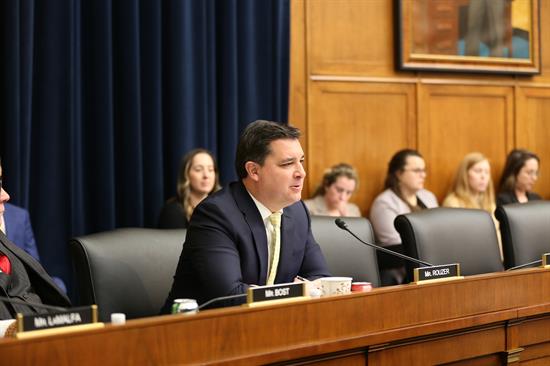Press Releases
Rouzer, Graves Introduce Legislation to Improve Water Quality Certifications and American Energy Infrastructure
Washington,
February 24, 2023
WASHINGTON, DC - Today, Congressman David Rouzer (NC-07) and Congressman Garret Graves (LA-06) introduced the Water Quality Certification and Energy Project Improvement Act. This legislation amends Section 401 of the Clean Water Act and makes key clarifications to existing law regarding the appropriate scope of review for a water quality certification. It also places procedural guardrails and requirements on states as they process requests for certification to prevent future abuses. "The water quality certification process has been — and continues to be — weaponized by certain states to stifle important energy projects they oppose, particularly pipelines, for political reasons completely unrelated to water quality and outside of the Clean Water Act's scope," said Rep. Rouzer. "At a time when American families are facing skyrocketing energy costs, we shouldn’t inhibit domestic energy production and its transport. This only makes America further dependent on foreign adversaries for our energy sources. Providing clarity to the water quality certification process is sorely needed to put an end to this irresponsible abuse of the law. I’m proud to join my friend and colleague, Garret Graves, in sponsoring this bill." "Over the past several years, we have watched some governors misuse the Clean Water Act to block urgently-needed American interstate energy projects," said Rep. Graves. "The result was greater reliance on Russian energy and unaffordable utility and fuel costs for Americans. This bill helps to cut through bureaucratic red tape and useless impediments – resulting in clean, affordable, and American energy." The Water Quality Certification and Energy Project Improvement Act would:
|


